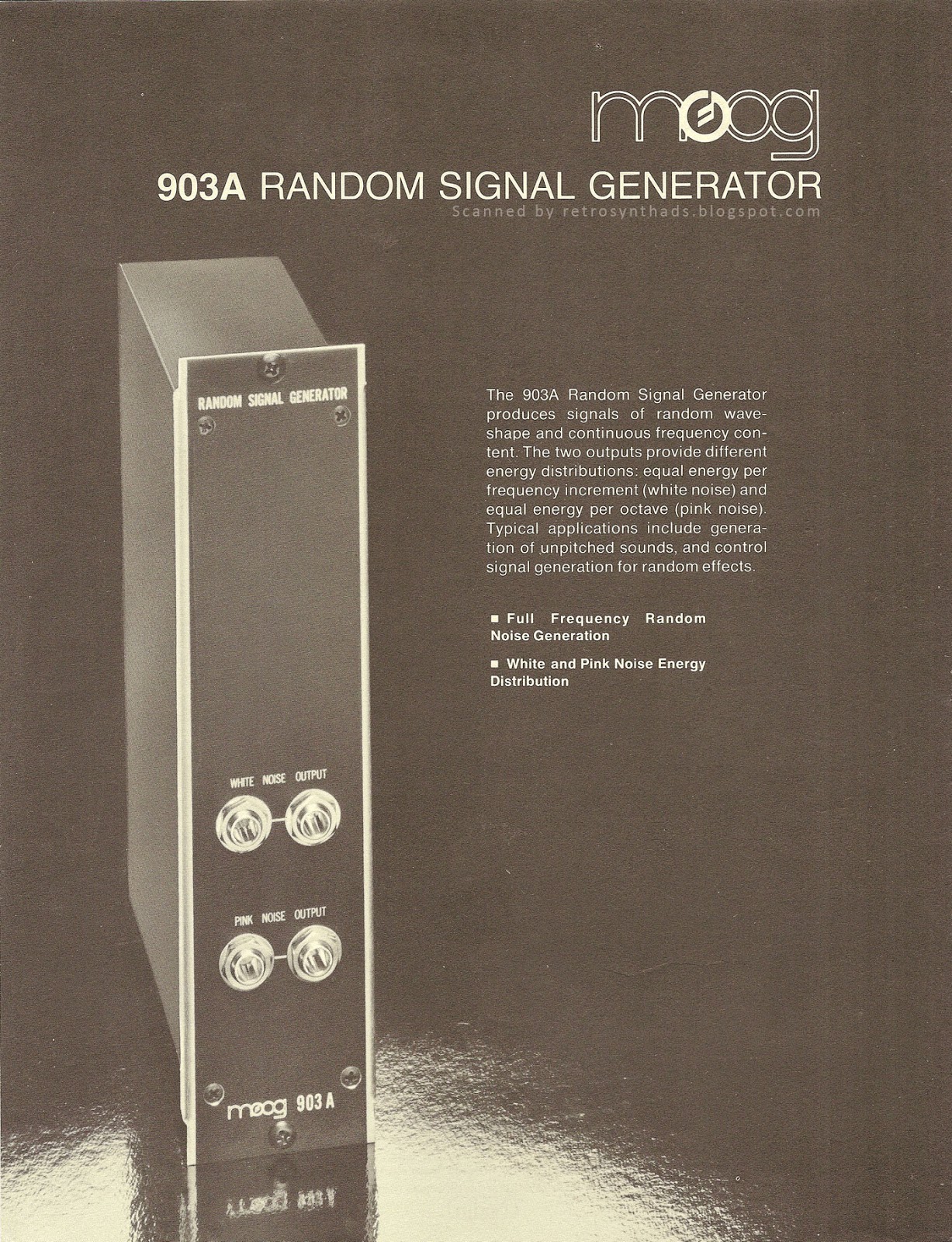Moog 902 Voltage Controlled Amplifier four-page brochure from 1976.
Voltage Controlled Oscillators aka V. C. A. aka Y. U. M. :)
If you are keeping track - this is the forth brochure in the series I've posted. You can view the other posts by clicking on their images below.
Like all the brochures in this series, the front cover includes a nice close-up shot of the module itself. The 902 VCA brochure resembles the VCO brochures in that it includes four pages of deliciousness. Flip open that gorgeous cover and you are greeted with the brochure copy on the left and some official looking diagrams on the right. And ultimately, specs on the back page.
One thing I haven't been freaking out about lately is that Moog logo. I love logos. Especially the old-skool logos like Moog, ARP, Sequential and the like. In all of these brochures, that lovely Moog logo is right there at the top. And the best part is, that Moog logo design is the one still used today. Nice.
But, did you notice that the location of the Moog logo on these brochures isn't constant. It's always on the opposite side that the module photo is on. Module on the left - logo on the right. Module on the right - logo on the left. Interestingly, the one brochure where the logo is on the right is also the only brochure I've posted so far that was printed in 1974 - not 1976 like the rest of them. Not sure where I'm going with that - just an observation. As I post more, we'll see if the pattern sticks.
Comparatively, VCOs have wave form selection buttons, octave knobs and various other doo-dads. VCFs have, at their most basic, cut-off and resonance controls. More advanced VCFs even let you choose the type of filter -low pass, high pass, bandpass... lucky ducks.
But VCAs... Maybe a volume knob. Waaaah.... waaaaaah.... On an Korg MS20 it's just an image of a triangle. No, really. The Yamaha CS15 has one control to adjust initial volume (besides the modulation controls for LFO and EG).
I guess my point is that its not surprising how little we pay attention to them.
I was lucky that my Moog Modular came with three VCAs, each sitting next to an envelope generator. So, it dawned on me early on how important their role was. More importantly, it dawned on me *before* I started creating my Eurorack modular. It's quite common out there to get a Eurorack system started without figuring VCAs into the equation.
Aside: speaking of Eurorack, one of my favorite VCA-type modules at the moment is local (to me!) Eurorack module designer Hexinverter.net's Galilean Moons. And yes, I've paired it with his Jupiter Storm module too. Together they are almost too much fun in a box to be legal. He includes some great sound examples on those pages. Check 'em out.
But back to the point. VCAs *are* important, especially as your system grows and you start creating more complex patches. Don't believe me... Just read through this "Do I really need a VCA" thread on Muff Wiggler.
Some great quotes:
- Filch: "The general motto around here is : "You can never have enough VCA's""
- fredguy "I started out not using vca's much and then came to understand what they brought to the party."
- robkramble: "I totally derped and overlooked the use of a VCA as a CV router... "
- Matos: "No, you don't need a VCA. You need many VCAs! "
- boramx: "i personally think you should have about 2 VCAs per 3u of modules."
"vcas are the next level shit y'all"
Yup.







No comments:
Post a Comment